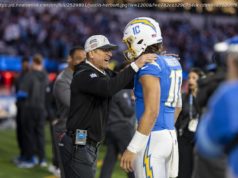Even at the time, we knew that the attack was deliberate and targeted. A year later, we know even more.
On 22 May 2017, thousands of people headed to the Manchester Arena for Ariana Grande’s concert expecting a fun, exciting evening out. A year later, we’re all too familiar with the events that followed, when a bomb was detonated in a terrorist suicide attack in the main entrance to the venue.
Even at the time, we knew that the attack was deliberate and targeted. Ariana Grande – whose tour was named after her album Dangerous Woman – fostered a young and predominantly female following as a former Disney star-turned-pop artist with a slew of songs about female empowerment and sexual freedom. An outspoken supporter of LGBT rights, Grande also had a large gay fan base. In a review of one of her earlier concerts, a writer described her audience as “pre-tween, tweens, teens, young gay (and fabulous) men, moms with cat ears, and multiple candidates for father of the year”.
Thanks to their less-stringent age restrictions, arena concerts often have young audiences: providing a safe space for getting dressed up and going dancing for those not yet going to nightclubs or rowdier gigs. “This attack stands out for its appalling, sickening cowardice,” Theresa May said the following day, “deliberately targeting innocent, defenceless children and young people.”
One year on, we know even more. We know that of the 14,000 who attended that evening’s show, the majority were girls and young women aged between eight and 20 years old. Of the 22 victims who died, 17 were women; 10 were children and teenagers. And many more young women and girls who attended the concert are still struggling to live a normal life.
For many teenagers, a big arena concert is a rite of passage: Ariana Grande’s was no different. The BBC Three documentary Manchester Bomb: Our Story specifically locates the concert in a wider context of increased freedom in these teenage girl’s lives. Its subjects talk with nostalgia of their excitement to attend.
Now 18 years old, Amelia – who was just six feet away from the blast when it happened – explains: “When it happened, I was at that boundary of when you start going out to like nightclubs and stuff, because obviously I was nearly 18.” She describes going to the concent as “empowering”, both in terms of the music and because, going there with her friends. “It felt like I were independent.”
Izzy, now 14, similarly sees the concert as coming during a period of newfound independence. “You get to that stage where you don’t want to be with your mum and dad any more – you just want to be with your friends.” The girls talk happily about what make-up they chose – a pink eyeshadow, a temporary tattoo, their hair dyed a new colour. “This was the first concert that I was going to on my own,” says Caitlin, now 14.
“It was quite sassy and fierce,” says Niamh, now 18. “It was just very Ariana – like, girl power.” “She’s just very inspiring,” said 11-year-old Erin.
But speaking about the aftermath of the terror attack, many of the girls feel the incident has psychologically curtailed the sense of new freedom they had leading up to the night. Amelia had to quit college due to “so many appointments” for her mental health, and her mother Tina struggles to allow her to live independently, as she is so worried that her life will be threatened again. Amelia describes herself as “less confident”.
“Before all this I’d go out with my friends all the time,” she says. “I just want to stay in the house and do nothing.” She spends her 18 th birthday at home, with friends and family around her. “If I was, like normal,” she says, “I would have probably gone out to Wigan.”
Louise Hett lost her brother Martyn in the attack: “When you turn 18,19,20,” she says, “you kind of make your own way out in the world, but it’s been put on hold for me. It has stopped everything that I planned.” Louise cancelled her plans to go to Leeds to study fashion at university. “It kind of feels like you’re a bit of failure, she says. “Before I would go out every weekend, but it doesn’t sound fun anymore, making new friends. I don’t think I could go out and enjoy myself.”
11-year-old Erin was unable to speak about what she saw on the night of the attack for a full nine months after the incident, and finds it difficult to sleep, even in her own house. “She still obviously clearly feels under threat,” her mother says. “I just keep on thinking that there’s someone outside. I know it sounds silly but it feels as if there’s a man with a rucksack or something, creeping up the stairs,” Erin explains. “I just want to be normal. I just want to be like everybody else.”
“I used to be so independent,” says Elycia, now 20, “and now I just feel like I rely on everyone.”
Despite all this, calling the bombing an attack on women and girls and LGBT youth, is still controversial. Nazir Afzal, former Chief Crown Prosecutor for north-west England, was responsible for prosecuting the Rochdale grooming gang in 2012. As Chief Executive of the Association of Police and Crime Commissioners in 2017, he worked to have the Manchester bombing described as an attack specifically aimed at women and girls. His suggestion was rejected by his board.
As Afzal writes in the forthcoming New Statesman this week, “I walked out of my last job, as head of the national body for police commissioners, after the terror attack in Manchester so that I could speak up about the fact that the attack was specifically aimed at women and girls. The bomber chose Ariana Grande because of the make-up of her audience.”
He continues, “Extremism towards women and girls is not confined to so-called caliphates, it is found everywhere and anywhere you look. Gender terrorism pervades every society – although men never call it that, because it would then need a national and international response.”
One year on, we now know more than ever that the attack was the result of a misogynist, regressive ideology that seeks to oppress women by limiting their freedom through fear. The Manchester bombing deliberately targeted young women.
Домой
United States
USA — Sport One year on, we must recognise the misogyny of the Manchester bombing






